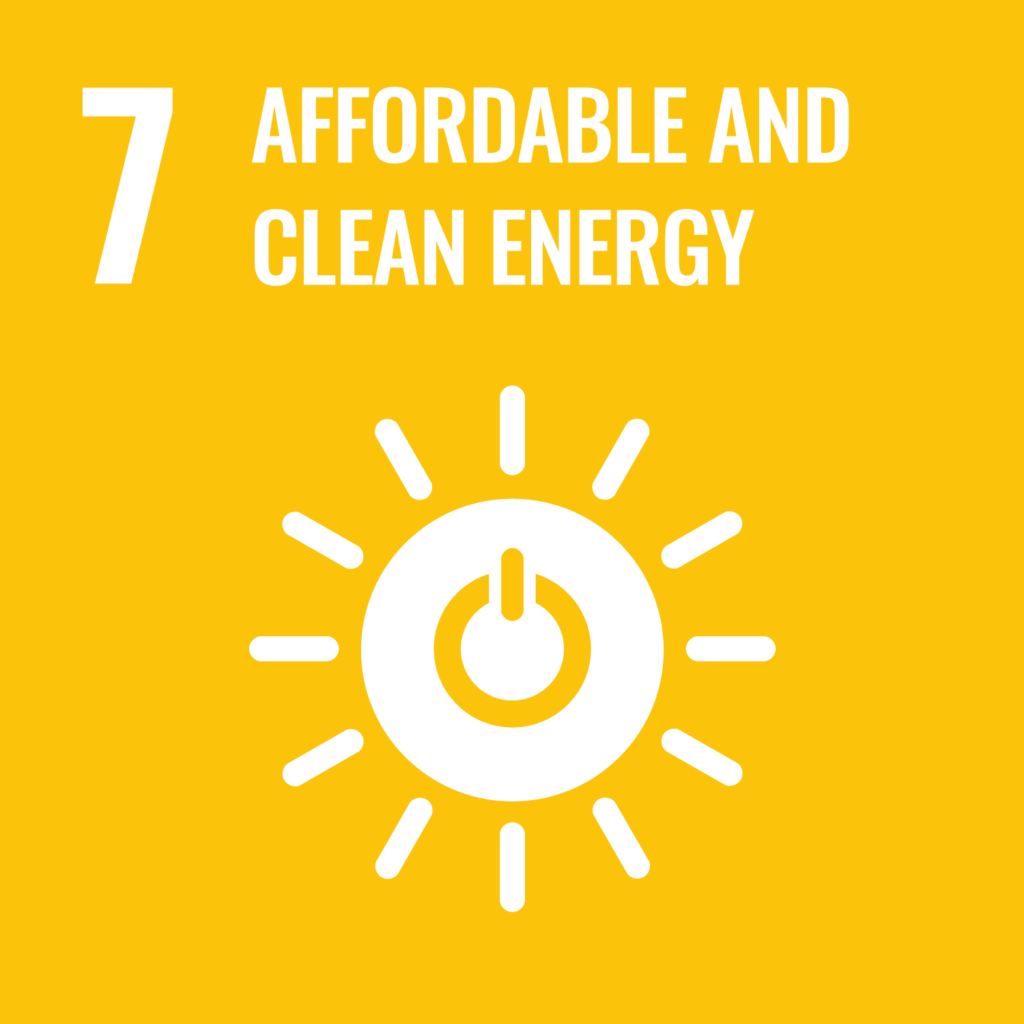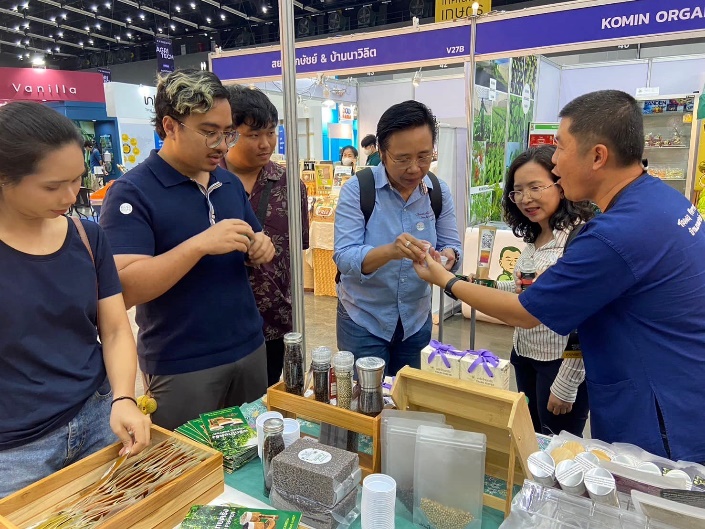Reporters : Mr.Konto Pantongkam,
Asst.Dr.Pituk Bunnoon,
Asst.Dr.Phatchakorn Areekul,
Mr.Sutaporn Getpun
Indicator : 7.4.4
Date : 4 April 2022
Related SDGs:

Biogas is a sustainable energy source derived from various waste materials, such as animal manure, farm wastewater, industrial effluents, municipal waste, and agricultural residues. This renewable energy is produced through a fermentation process that breaks down organic matter into anaerobic gases with the assistance of different types of bacteria. Typically, biogas comprises around 60-70% methane (CH4) and 30-40% carbon dioxide (CO2), with trace amounts of hydrogen sulfide (H2S) and nitrogen (N2). Methane, a primary component of biogas, serves as a versatile fuel source. It can be used for cooking, as a vehicle fuel, and in various industrial applications. Establishing community and household biogas systems involves fermenting agricultural and household waste in biogas ponds and setting up a gas distribution network for cooking. This not only mitigates the problems of odors and harmful gases associated with agriculture and animal husbandry but also reduces costs for residents in the Bo Dan Subdistrict Community of Sathing Phra District, Songkhla Province. Furthermore, this system empowers households to produce their own biogas tailored to their specific needs, complete with necessary infrastructure and fermentation tanks for communal gas production. This not only saves money but also lays the groundwork for future use of natural gas as a household fuel.

Fig. 1 Creating an efficient biogas system for community and household use, promoting low-carbon community technology.
Related Links:




